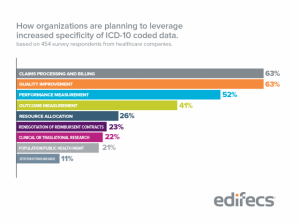Article by Mary Butler, associate editor at the Journal of AHIMA. “This article was originally published on the Journal of AHIMA website on February 4, 2015, and is republished here with permission.”
See full article here
A key Congressional committee will be holding a stakeholder hearing on ICD-10-CM/PCS implementation next week. The “Examining ICD-10 Implementation” hearing, set for 10:15 am ET on February 11, is being held by the influential House Energy and Commerce Committee’s subcommittee on healthcare, which is chaired by Rep. Joe Pitts (R-PA).
“This hearing is an important opportunity to hear about the state of preparedness of all those involved and ensure that we are continuing to move forward in health care technology,” Pitts said in a press release announcing the hearing .
Back in December, House Energy and Commerce Committee Chairman Fred Upton (R-MI) and House Rules Committee Chairman Pete Sessions (R-TX) issued a statement saying that they would hold hearings on ICD-10 and stay in communication with the Centers for Medicare and Medicaid Services (CMS) “to ensure that the [ICD-10-CM/PCS] deadline can successfully be met by stakeholders.”
 The Congressmen noted in the statement that “it is essential that we understand the state of preparedness at CMS. Following the most recent delay of ICD-10, we heard from a number of interested parties concerned about falling behind or halting progress.”
The Congressmen noted in the statement that “it is essential that we understand the state of preparedness at CMS. Following the most recent delay of ICD-10, we heard from a number of interested parties concerned about falling behind or halting progress.”
AHIMA staff will attend the February 11 hearing and closely monitor any developments that result from it. Panelists testifying at the hearing will include stakeholders who both oppose and support implementing ICD-10 on October 1, 2015.
The Majority Memorandum, a witness list, and witness testimony will be available online here as they are posted.
Historically, this subcommittee has played key roles in healthcare legislation and in the ongoing debate over the SGR patch—which last year included language delaying ICD-10. Another SGR patch may once again be voted on by Congress in the coming weeks if a permanent fix is not enacted. The House Energy and Commerce Committee also includes physician members of Congress who have a specific interest in the implementation of ICD-10.
AHIMA officials have said they are encouraged by the hearing announcement, and feel it is a chance for an open and frank discussion about ICD-10, the current industry readiness, the impact of any future implementation delays, and the best path to move forward with implementation. The initial statement announcing the hearings came during wide grassroots activism in support of no further ICD-10 delays on the part of AHIMA, the Coalition for ICD-10, and other supporters.
The House subcommittee hearing will be held the day after the Coalition for ICD-10’s Capitol Hill briefing on Feb. 10. The briefing will discuss rural provider and payer readiness for ICD-10, and include perspectives from hospital and physician groups who support the current October implementation deadline.
Click here for a list of the House Energy and Commerce Committee Subcommittee on Health’s members.
The hearing webcast will be available to watch live at http://energycommerce.house.gov/.
 It’s not like physicians can see a patient recover as their symptoms are documented. So there’s no clinical reason why U.S. healthcare needs more data.
It’s not like physicians can see a patient recover as their symptoms are documented. So there’s no clinical reason why U.S. healthcare needs more data.